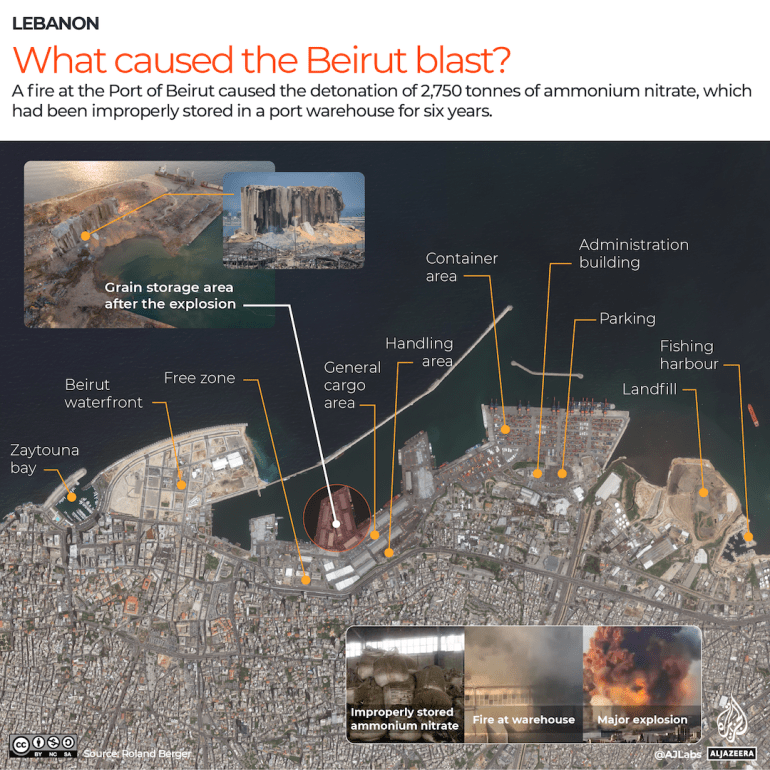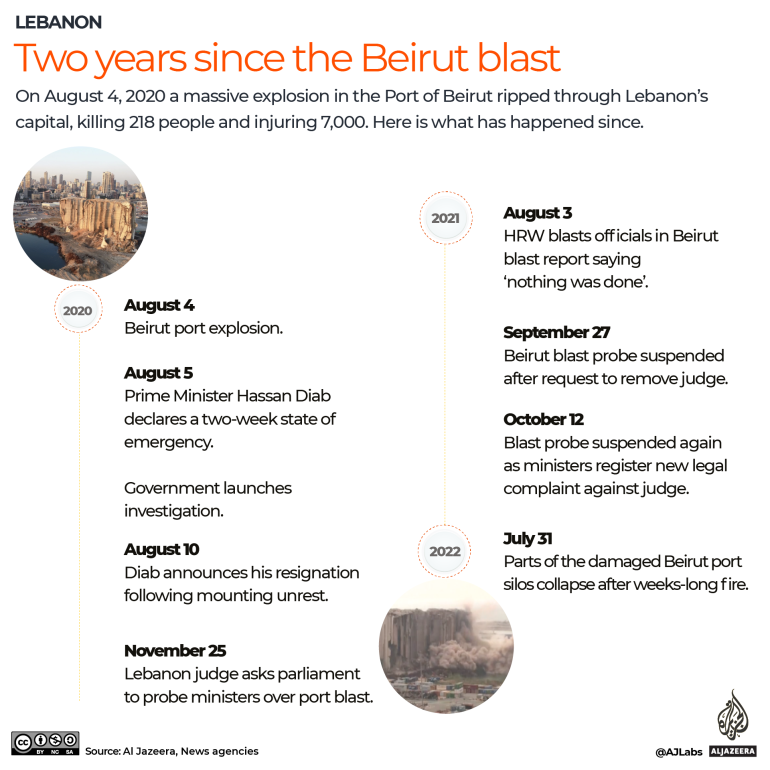Source: Al Jazeera
Thursday 4 August 2022 16:27:45
Infographic: How Big Was the Beirut Explosion?
On August 4, 2020, a massive explosion in the Port of Beirut ripped through Lebanon’s capital, killing 218 people, injuring 7,000 and leaving 300,000 displaced.
The blast, which is considered one of the biggest non-nuclear explosions to have been recorded, damaged 77,000 apartments and caused an estimated $3.8-4.6bn in material damage.
Following the incident, the Lebanese government launched an investigation into the explosion, however, two years later those affected have still not received answers.

What caused the Beirut blast?
A fire at the Beirut port caused the detonation of 2,750 tonnes of ammonium nitrate, which had been improperly stored in a port warehouse for six years.
The ammonium nitrate, commonly used to make fertiliser and explosives, arrived in Beirut in 2013 on a Moldova-flagged ship making its way from Georgia to Mozambique.
The Rhosus merchant vessel, owned by a Russian businessman, was forced to dock in Beirut after facing technical problems at sea, according to (PDF) lawyers representing the boat’s crew.
The ship was subsequently impounded by the Lebanese authorities for failing to pay port fees. In 2014, the ship’s cargo was eventually unloaded and stored in a warehouse in the port.
In the years that followed a number of safety warnings were sent to multiple high-level officials but nothing was done.

What has happened since?
In the aftermath of the explosion, an investigation was launched; however, the process of holding government officials to account was blocked numerous times.
In December 2020, the first appointed judge, Judge Fadi Sawan charged the caretaker prime minister with negligence along with three other ministers. However, Sawan was accused of breaching the constitution. In February 2021, Sawan was removed and replaced by Judge Tarek Bitar. However, Bitar faced similar blockages after he tried to request parliament to lift immunity on suspects.

Here are some key events since August 4, 2020:
August 4, 2020 – Beirut port explosion.
August 5, 2020 – Prime Minister Hassan Diab declares a two-week state of emergency. The government launches an investigation into the explosion.
August 10, 2020 – Diab announces his resignation amid mounting unrest.
September 26, 2020 – Lebanon PM-designate Mustapha Adib resigns amid impasse over government formation.
November 25, 2020 – Judge Fadi Sawan asks parliament to investigate 10 former ministers he suspects were responsible for the conditions that led to the port blast.
July 15, 2021 – PM designate, Saad Hariri resigns after failing to form a government.
August 3, 2021 – HRW blasts officials in the Beirut blast report saying “nothing was done”.
September 27, 2021 – Beirut blast probe suspended after request to remove judge.
October 12, 2021 – Beirut blast probe suspended again as ministers register new legal complaint against judge.
April 14, 2022 – The Lebanese government orders the demolition of grain silos which are at risk of collapsing.
July 31, 2022 – Parts of the damaged Beirut port silos collapse after weeks-long fire.


